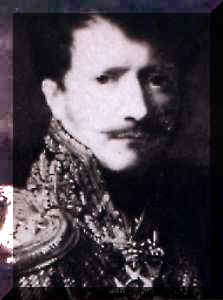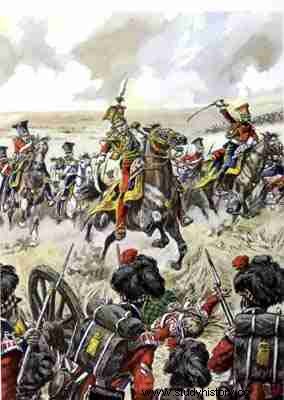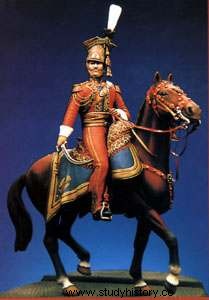October 18, 1774 (Paris) - December 28, 1853 (Paris)

A volunteer in the 7th battalion of Paris, Colbert-Chabanais had a quick career on the Rhine and then in Vendée:second lieutenant of the hussars in 1795, he was however suspended by Hoche at the beginning of 1796 because of his royalist sentiments. He resumes a chamberlain as provisional commissioner of wars in the Army of the East. Back in France, he was captain of the Mamluks of the guard in 1802, aide-de-camp to Junot then to Berthier. In the Grande Armée in 1805, wounded at Austerlitz, colonel of the hussars at the end of 1806 after a detour via Italy, he was in Heilsberg and Friedland, again wounded on 17 July 1807. Brigadier general on the eve of the war of 1809 against Austria, he charged at the head of the light cavalry at Amstetten (May 5), at Raab (June 14), was wounded in the head at Wagram. Baron of the Empire, he was in Holland in 1810, in Germany in 1811. He made the Russian campaign at the head of the Red Lancers of the Guard. He distinguished himself at Bautzen, during the Saxony campaign, was appointed general of division in November 1813, fought the last battles during the French campaign:La Rothière (February 1), Champaubert (February 10), Montmirail (February 11) . Arcis-sur-Aube (March 20, 1814). At the head of the lancers of the guard, he will charge at Quatre-Bras and at Waterloo where he will receive a final wound. Imprisoned during the second Restoration, he was appointed inspector general of cavalry in 1826 and followed the Duke of Nemours on the Constantine expedition ten years later. One of the last survivors of the Empire's wars, General Colbert-Chabanais was to witness the birth of the Second Empire. He has his name inscribed on the Arc de Triomphe de l'Etoile.


